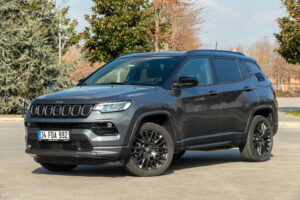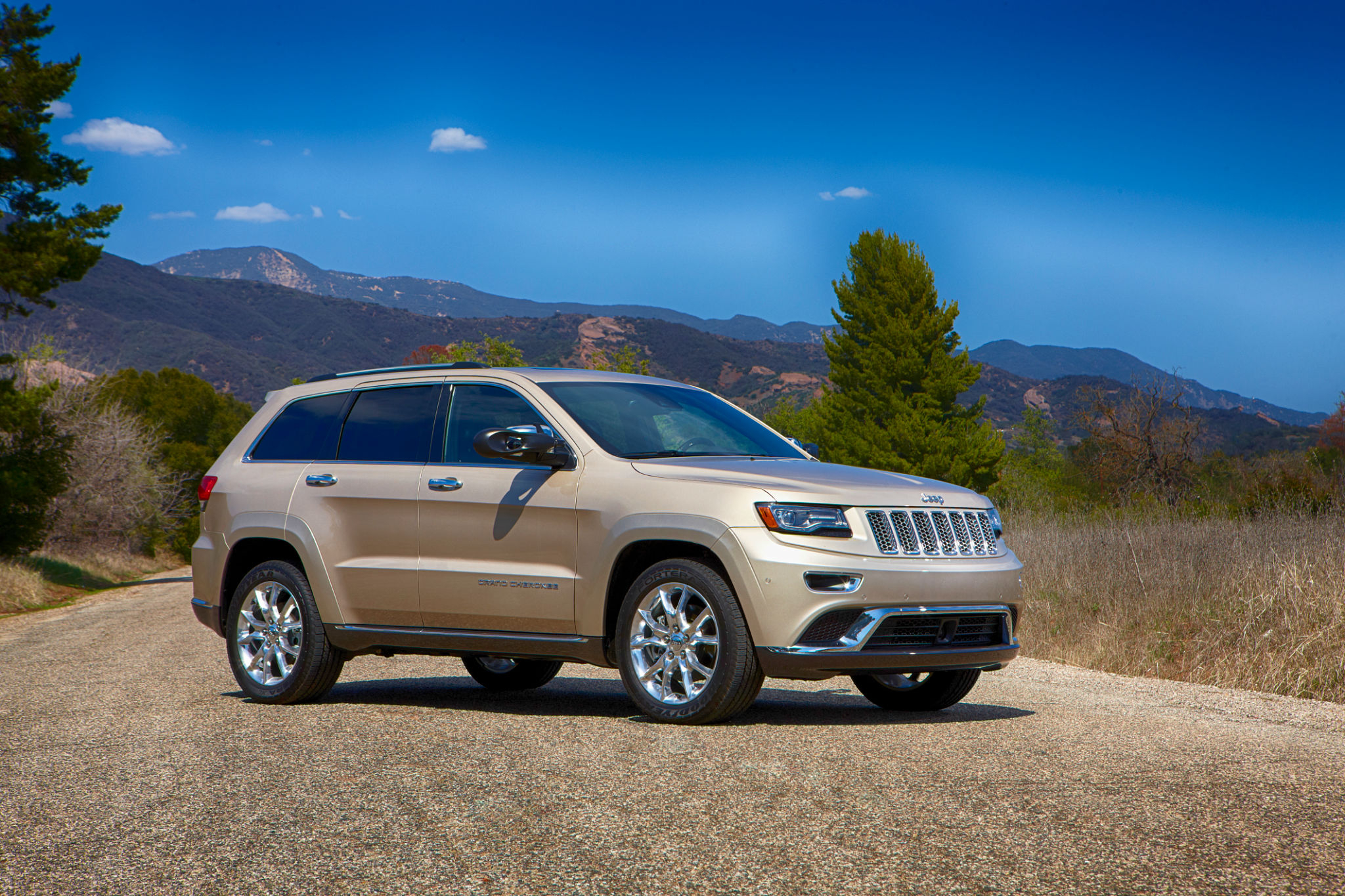The Jeep Cherokee, a stalwart in the realm of SUVs, is renowned for its durability and off-road capability. However, like any vehicle, it requires regular maintenance to remain reliable and safe. This article delves into the various aspects of maintaining a Jeep Cherokee, focusing particularly on the costs involved. Whether you’re a current owner or considering a purchase, understanding these costs is crucial for long-term vehicle care.
What Determines the Maintenance Cost of a Jeep Cherokee?
The maintenance cost of a Jeep Cherokee can differ based on its model year.
When it comes to the Jeep Cherokee, a vehicle celebrated for its robustness and versatility, the cost of keeping it in top condition isn’t a fixed figure. It varies, and a significant factor in this variation is the model year of your vehicle. Understanding this can help you budget more effectively for the upkeep of your Cherokee.
Newer Models:
The latest models of the Jeep Cherokee, adorned with modern technology and sophisticated parts, often come with a higher price tag for maintenance. Why is this the case? Well, it’s because these newer versions often incorporate advanced features – think of electronic systems, modern safety features, and intricate engine components. While these advancements make for a superior driving experience, they also mean that maintaining these systems can be more complex and, as a result, more costly. For instance, replacing a sensor in a newer model might cost more than a straightforward repair in an older model.
Older Models:
On the flip side, older Jeep Cherokee models, while potentially cheaper to maintain in terms of the cost of parts, might see you visiting the mechanic more frequently. As vehicles age, parts wear out – it’s an inevitable aspect of car ownership. Components like the suspension, brakes, and even the engine and transmission can require more attention as the vehicle ages. This doesn’t necessarily mean that an older Jeep Cherokee is a bad investment; it simply means that you need to be prepared for the possibility of more frequent repairs. Regular check-ups can catch potential issues early, often leading to less expensive repairs than dealing with a major breakdown.
Whether you drive a brand-new Jeep Cherokee or a well-loved older model, the key to managing maintenance costs effectively lies in regular care and timely servicing. This keeps your vehicle running smoothly and helps identify potential issues before they become major, costlier problems.
In conclusion, consider the model year and its implications on maintenance costs when budgeting for a Jeep Cherokee. Newer models might hit your wallet harder for individual repairs but less frequently, while older models may require more regular, albeit possibly cheaper, maintenance visits. Understanding this balance is essential for any Jeep Cherokee owner who wants to keep their vehicle in peak condition without any unwelcome financial surprises.
Impact of Driving Habits on Jeep Cherokee Maintenance Expenses

Your driving habits significantly influence your Jeep Cherokee’s maintenance costs.
Driving style plays a crucial role in the longevity and health of your Jeep Cherokee. It’s not just about how often you drive, but how you drive that counts.
Aggressive Driving and Its Effects
You might unknowingly contribute to increased wear and tear if you enjoy pushing your Cherokee to its limits, accelerating rapidly, or braking hard. Aggressive driving can strain the engine, transmission, brakes, and tires, leading to more frequent and costly repairs. For instance, hard acceleration can strain the engine, while sudden braking wears out brake pads and rotors faster. This means you’ll visit the mechanic more often than someone who drives more gently.
The Impact of Off-Roading
The Jeep Cherokee is known for its off-road capabilities, but regularly taking it on rough terrain can have consequences. Off-roading can expose your vehicle to extreme conditions like mud, water, rocks, and uneven surfaces. This can lead to quicker degradation of suspension components, undercarriage damage, and more frequent tire replacements. While it’s built to handle such conditions, the more intense and frequent the off-roading, the higher the maintenance costs can be.
Benefits of Regular, Careful Driving
In contrast, adopting a more conservative driving style can help decrease maintenance costs. Smooth acceleration, gentle braking, and adhering to speed limits contribute to safer driving and reduce the strain on your Cherokee’s mechanical parts. This approach leads to less frequent need for repairs and can extend the life of many components.
Tips for Reducing Maintenance Costs Through Driving Habits
- Accelerate Smoothly: Gradual acceleration puts less stress on the engine and transmission.
- Brake Gently: Anticipate stops and apply brakes softly to reduce wear on brake pads and rotors.
- Avoid Heavy Loads: Carrying heavy loads or towing excessively can strain the engine and suspension.
- Regular Checks: Post off-roading, inspect your vehicle for any potential damage or necessary clean-up.
- Stick to Paved Roads When Possible: While taking the off-road path is tempting, doing so sparingly can save on maintenance costs.
Why Regular Maintenance is Crucial for Your Jeep Cherokee
Regular maintenance can prevent expensive repairs down the line.
Staying on top of routine maintenance like oil changes, tire rotations, and brake inspections can significantly reduce the likelihood of major, costly repairs. This proactive approach is key to maintaining your Jeep Cherokee’s health.
Warranty Considerations for Jeep Cherokee Maintenance
Adhering to maintenance schedules is often necessary to keep your warranty valid.
Many warranties require regular maintenance to remain valid. This means neglecting routine checks and repairs can harm your vehicle and void your warranty coverage.
How to Effectively Manage Your Jeep Cherokee’s Maintenance Costs
Owning a Jeep Cherokee comes with its share of responsibilities, and maintenance tops that list. But fear not! With some know-how and savvy strategies, you can keep these costs manageable. Let’s dive into how you can do just that.
DIY Maintenance Tips for Jeep Cherokee Owners
Performing simple maintenance tasks yourself can save money.
Changing Air Filters
Your Jeep Cherokee’s air filter is crucial for its engine’s health. A clogged filter can reduce efficiency and increase fuel consumption. Luckily, replacing it is a breeze. You just need to:
- Locate the air filter unit, usually found in a black box with metal clips on the side.
- Open the box and take out the old filter.
- Insert the new filter, ensuring it fits snugly.
- Close the box back up.
It’s a quick job that can save you both time and money!
Checking Fluid Levels
Regularly checking and topping up fluids like engine oil, coolant, brake fluid, and windshield washer fluid is vital. Here’s what you need to do:
- Open the hood and locate the various fluid reservoirs (refer to your owner’s manual if unsure).
- Check the level of each fluid against the marked indicators.
- If any fluid is low, top it up to the recommended level.
This regular checkup can prevent many common engine problems.
Replacing Wiper Blades
Worn out wipers can impair visibility during bad weather. Changing them is straightforward:
- Lift the wiper arm away from the windshield.
- Unhook the old wiper blade and remove it.
- Attach the new blade, ensuring it clicks into place.
- Gently lower the arm back onto the windshield.
And there you have it – clear vision restored in minutes!
Finding a Reliable Service Provider for Jeep Cherokee Maintenance
Choosing the right mechanic can impact the quality and cost of your maintenance.
Opting for a Dealership or Independent Mechanic
This choice boils down to your preference, vehicle warranty status, and budget. Dealerships offer specialized knowledge and authentic parts, but their services might be pricier. Independent mechanics can provide more competitive rates and often, a more personalized service.
Research and Referrals
Start by asking fellow Jeep Cherokee owners for their recommendations. Online reviews and forums can also be a goldmine of information. When you’ve shortlisted a few, check their certifications and experience, particularly with Jeep models.
Questions to Ask
When you visit a mechanic, don’t hesitate to ask questions like:
- Do they have experience with Jeep Cherokees?
- What warranties do they offer on their work?
- Can they provide a detailed quote before starting any work?
Being informed helps you make the best choice for your Jeep Cherokee’s maintenance needs.
The Importance of Understanding Jeep Cherokee Maintenance Schedules
Deciphering the Jeep Cherokee’s Maintenance Schedule
Adhering to the recommended maintenance schedule is key to keeping your Cherokee in prime condition.
Every Jeep Cherokee model is accompanied by a detailed maintenance schedule provided by the manufacturer. This schedule is not just a list of suggestions; it’s a roadmap to keeping your vehicle in its best possible state. Why is this important? Because every part of your Cherokee, from the engine to the brakes, has a specific lifespan and wear rate. Regular maintenance checks are designed to catch any potential issues before they become serious problems.
For instance, your Cherokee’s manual might recommend oil changes every 5,000 to 7,500 miles. This is crucial because oil is the lifeblood of your engine, providing lubrication and reducing friction. Neglecting oil changes can lead to severe engine damage. Similarly, this schedule includes tire rotations, brake inspections, and fluid checks. Each plays a vital role in ensuring your vehicle’s performance and safety.
The key to deciphering this schedule is understanding the needs of your specific Jeep Cherokee model. A 2020 model may have different requirements than a 2015 model, for instance. This could be due to technological advancements, different engine types, or other factors. Always refer to your owner’s manual or consult with a professional mechanic to understand these nuances.
Unexpected Maintenance Costs for Jeep Cherokee
Always be financially prepared for unexpected repair needs.
Even the most meticulously maintained Jeep Cherokee can encounter unforeseen problems. It could be something as simple as a flat tire or as complex as an electrical system failure. These unexpected issues are normal for vehicle ownership, but they can be financially stressful if you’re not prepared.
To mitigate this, it’s wise to set up a maintenance fund. Think of it as a savings account for your car. Regularly setting aside a small amount can build a cushion to tap into when these surprise expenses crop up. How much should you save? A general rule is to set aside at least $500 to $1,000 per year for maintenance and repairs. This amount can vary based on your driving habits, the age of your vehicle, and its overall condition.
Remember, the cost of not addressing these unexpected repairs can be much higher in the long run. A small unattended issue can escalate into a major problem, leading to more significant expenses and potentially compromising your vehicle’s safety.
Cost-Saving Strategies for Jeep Cherokee Maintenance

Utilizing Warranties and Service Plans
Making the most of warranties and service plans can greatly reduce maintenance costs.
When managing the maintenance costs for your Jeep Cherokee, understanding and utilizing your vehicle’s warranty and any available service plans is key. Many owners overlook this, but it can lead to substantial savings.
In-Depth Explanation:
- Know Your Warranty: Jeep Cherokees typically come with a manufacturer’s warranty that covers a range of maintenance needs for a specified period. It’s important to know what your warranty covers and for how long. Regular maintenance, certain repairs, and even parts replacements might be fully or partially covered under your warranty.
- Service Plans: Some dealerships offer service plans that you can purchase separately or as part of your buying package. These plans often cover routine maintenance like oil changes, tire rotations, and brake inspections at a lower cost than paying for these services individually.
- Keep Records: Maintain a log of all your services and repairs. This practice helps keep track of what has been done and ensures that you have the necessary documentation if a warranty claim arises.
- Read the Fine Print: Be aware of the conditions that can void your warranty. For example, modifications to your Jeep Cherokee or neglecting routine maintenance can sometimes lead to a voided warranty.
Comparing Costs of Dealership vs. Independent Mechanics
Choosing between a dealership and an independent mechanic involves balancing costs with specialized knowledge.
When your warranty expires or for services not covered by it, you can choose between dealership service centers and independent mechanics. Each has its benefits and drawbacks in terms of cost and service quality.
In-Depth Explanation:
- Dealership Service Centers:
- Pros: Dealerships specialize in your specific vehicle make and model. This means they have the latest tools, diagnostic equipment, and training. They also use OEM (Original Equipment Manufacturer) parts, ensuring they are specifically designed for your Jeep Cherokee.
- Cons: These benefits often come at a higher cost. Dealership maintenance can be more expensive than services from independent mechanics.
- Independent Mechanics:
- Pros: Independent shops often offer more competitive pricing. They can be more flexible in their service offerings and may provide a more personalized customer service experience. Many independent mechanics are highly skilled and may offer quality service similar to dealerships.
- Cons: The key drawback is that they might not have specialized tools or training specific to Jeep Cherokee models. Additionally, they may use aftermarket parts, which are generally cheaper but might not always match the quality of OEM parts.
Making the Decision:
- Consider your current situation: The dealership is usually the best choice if your Cherokee is still under warranty. For out-of-warranty vehicles, compare costs and read reviews for both dealerships and local mechanics.
- Build a Relationship: Whether you choose a dealership or an independent mechanic, building a good relationship with your service provider can lead to better service and potentially some cost savings in the long run.
FAQs about Jeep Cherokee maintenance cost
What is the average cost of an oil change for a Jeep Cherokee?
Average oil change costs for a Jeep Cherokee range from $30 to $60.
How often should I perform tire rotation on my Jeep Cherokee, and what’s the cost?
Tire rotation should be done every 6,000 to 8,000 miles, typically costing around $20 to $50.
Are there any common maintenance issues with Jeep Cherokees that owners should know?
Common issues include electrical problems and transmission glitches.
Can performing regular maintenance extend the lifespan of my Jeep Cherokee?
Yes, regular maintenance can significantly extend the life of your Jeep Cherokee.
How does neglecting maintenance affect the resale value of a Jeep Cherokee?
Neglecting maintenance can drastically reduce the resale value of your Jeep Cherokee.
Conclusion
Maintaining a Jeep Cherokee involves various factors, from understanding the specific needs of your model to choosing the right service provider. Regular maintenance keeps your vehicle running smoothly and preserves its value and longevity. By being proactive and informed, you can ensure that your Jeep Cherokee remains a reliable and enjoyable ride for years to come.

Hello there, this is Thomas Byrd. I am a professional car mechanic who leads a team of junior mechanics in a repair and restoration shop. In the beginning, I used to work for a jeep service center as a basic worker. From there I keep learning, changed my job 2 times and now I am a professional who leads a group of mechanics. Though a have expertise in the jeep, I know very well about all types of cars. To share my knowledge and skills with others I have created this blog website. Whenever I get free time from work I give my time to my blog.

